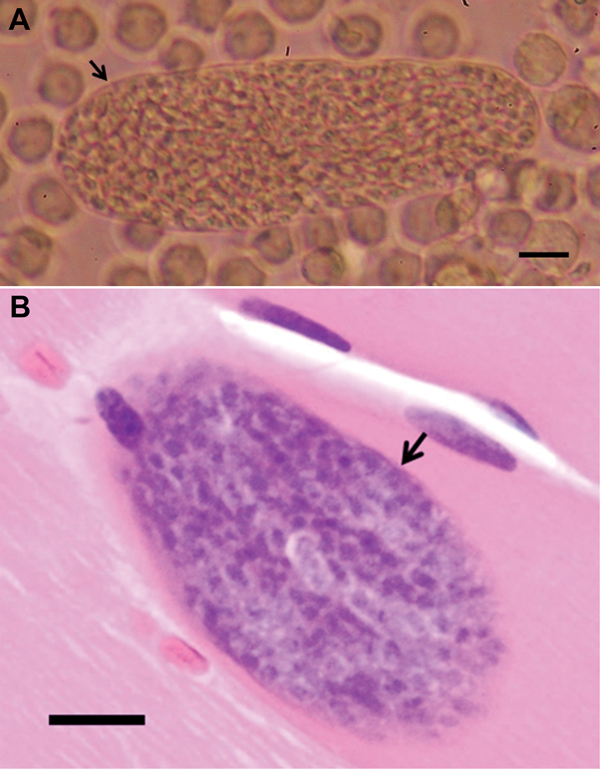|
Sarcocystis Nesbitti
''Sarcocystis nesbitti'' is a species of Apicomplexa. __TOC__ Human infection An outbreak investigation was conducted on 93 symptomatic persons from Malaysia following a college retreat on January 17–19, 2012, on Pangkor Island. Predominant manifestations were fever (relapsing in about 50% of patients), myalgia, headache Headache is the symptom of pain in the face, head, or neck. It can occur as a migraine, tension-type headache, or cluster headache. There is an increased risk of depression in those with severe headaches. Headaches can occur as a result ..., and cough. Although only two patients were confirmed to be acutely infected with ''S. nesbitti'', the remaining students and teachers in the group likely had the same infection, because nearly all had similar signs and symptoms with onset of illness within days of each other. In addition, 9 patients had a distinctive facial myositis, but sarcocysts could not be verified in all of them because only three pati ... [...More Info...] [...Related Items...] OR: [Wikipedia] [Google] [Baidu] |
Apicomplexa
The Apicomplexa (also called Apicomplexia) are a large phylum of parasitic alveolates. Most of them possess a unique form of organelle that comprises a type of non-photosynthetic plastid called an apicoplast, and an apical complex structure. The organelle is an adaptation that the apicomplexan applies in penetration of a host cell. The Apicomplexa are unicellular and spore-forming. All species are obligate endoparasites of animals, except '' Nephromyces'', a symbiont in marine animals, originally classified as a chytrid fungus. Motile structures such as flagella or pseudopods are present only in certain gamete stages. The Apicomplexa are a diverse group that includes organisms such as the coccidia, gregarines, piroplasms, haemogregarines, and plasmodia. Diseases caused by Apicomplexa include: * Babesiosis (''Babesia'') * Malaria (''Plasmodium'') * Cryptosporidiosis (''Cryptosporidium parvum'') * Cyclosporiasis (''Cyclospora cayetanensis'') * Cystoisosporiasis (''Cystoisosp ... [...More Info...] [...Related Items...] OR: [Wikipedia] [Google] [Baidu] |
